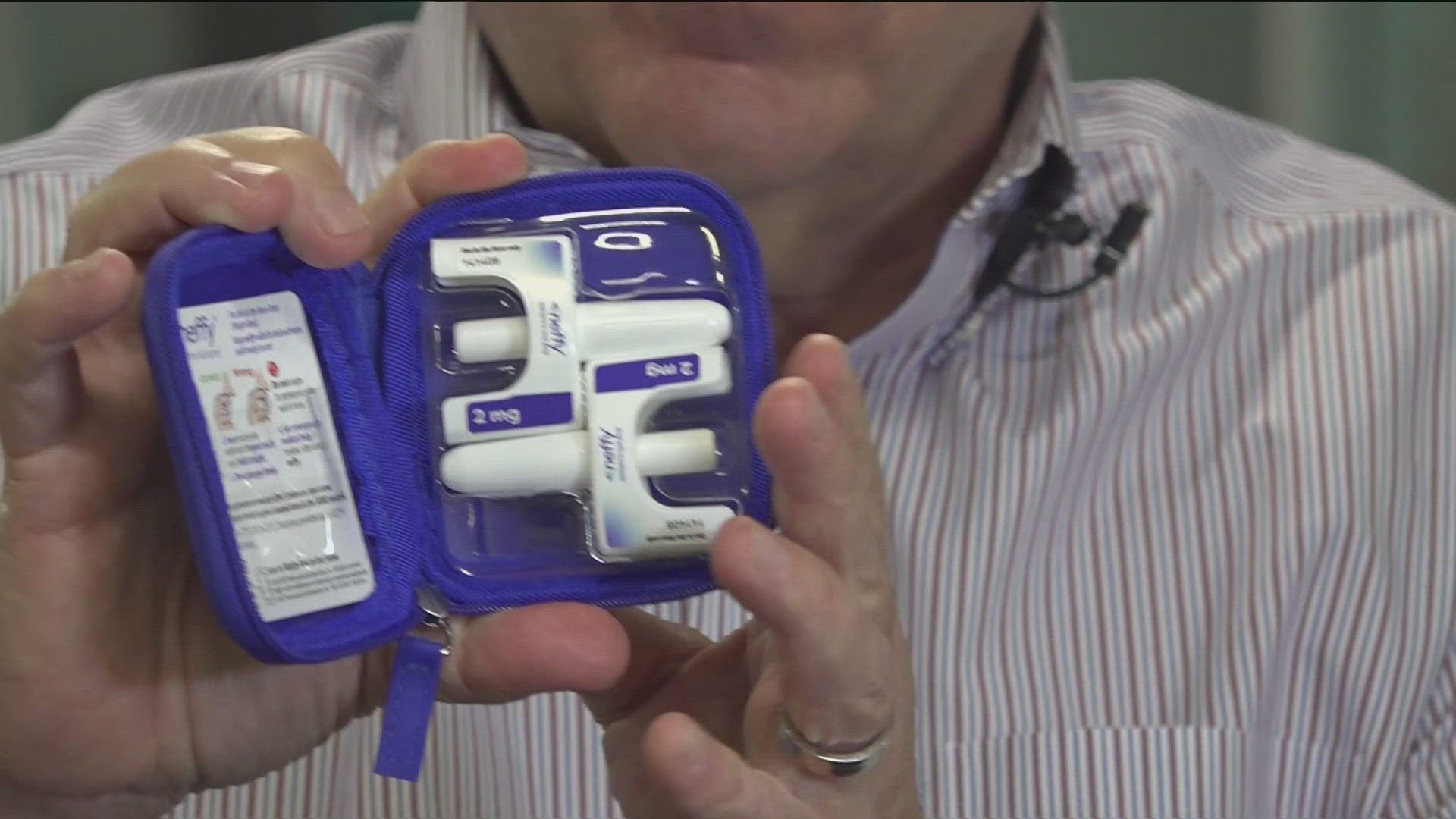SAN DIEGO — A nasal spray to treat patients in anaphylactic shock is now on the market and it was developed in our backyard.
The epinephrine medication could replace the fear of using a needle injection to treat many patients suffering an allergic reaction in an emergency.
Instead of using the epinephrine injection commonly known as an EpiPen to treat a severe allergic reaction, a San Diego-based biotech company has been approved by the FDA to develop an epinephrine nasal spray called Neffy.
Just a 2 milligram spray of epinephrine in a nostril is now on the market to treat patients suffering from a severe food allergy, venom or drug.
“It’s painless. It’s instantaneous. So, the nasal spray gives almost the exact same exposure as injection products, so that it’s absorbed extremely rapidly,” said Richard Lowenthal.
He is the CEO and President of ARS Pharmaceuticals which developed Neffy. The Sorrento Valley based biotech company was behind the emergency nasal spray medications, Narcan, an overdose antidote and Valtoco which is used to treat seizures in epilepsy patients.
“The absorption enhancing technology we use, which is called Intravail, is a very safe substance that makes your nasal mucosa more porous, so it kind of makes it like a sponge,” said Lowenthal.
The company is hoping Neffy can be a game changer. A study by the American College of Allergy, Asthma, and Immunology found 52% of patients with severe allergies did not use the epinephrine auto-injectors they were prescribed an emergency. Many cited the fear of using a needle and mental shock. Caregivers were also hesitant for the same reasons and any delay could worsen symptoms or even cause death for the patient.
“Even with a child, all you have to do is get it placed in their nose and push the plunger, and it takes literally a fraction of a second, and then they’re medicated. They can’t get it out if they sneeze, if they sniff in, if they cough it doesn't really matter. They're medicated at that point, and they're hopefully protected,” said Lowenthal.
Last year the FDA asked ARS for more data about repeat dosing of Neffy. In August they granted the company a fast track approval for patients 66 pounds or heavier.
Like most nasal sprays the FDA says common side effects include throat irritation, tingling nose and headache.
“The FDA did judge that Neffy should work as equally effective as injection products, given the pharmacokinetic absorption of the drug and also the pharmacodynamic response in the body,” said Lowenthal.
Some physicians have said they are still on the fence since there is a lack of trials on patients using it during an episode.
“We did a study in Japan with Neffy , this was mostly children receiving oral food challenge who then went into a reaction, and it was 100% effective on a single dose in that study,” said Lowenthal. “With that said, we can't induce an allergic reaction in somebody normally and let them progress to a very severe state. So nobody's ever done that.”
Lowenthal added about 70 percent of insurance companies have approved it but he says it could take up to a year for all to make it available. Each prescription includes two doses that can last 30 months and survive up to 122-degree Fahrenheit heat. The cost can range from a $25 copay up to $199. ARS is offering a $25 dollar.
“As comparison, the average generic auto injector EpiPen, for example, copay with insurance is $40 and without insurance is about $200,” said Lowenthal.
ARS says right now they are working on a lower Neffy dose for children as light as 33 pounds and eventually a low-dose spray for toddlers and babies.
The FDA says as with injectable epinephrine, patients using Neffy may need emergency care after experiencing anaphylaxis.

